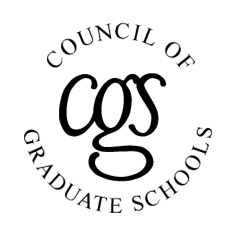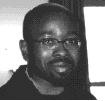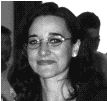

 |
 |
 |
 |
 |
The Preparing Future Faculty (PFF) program is a national movement to transform the way aspiring faculty members are prepared for their careers. PFF programs provide doctoral students, as well as some masterís and postdoctoral students, with opportunities to observe and experience faculty responsibilities at a variety of academic institutions with varying missions, diverse student bodies, and different expectations for faculty.
The PFF initiative was launched in 1993 as a partnership between the Council of Graduate Schools (CGS) and the Association of American Colleges and Universities (AAC&U). During a decade of grant activity, from 1993-2003, PFF evolved into four distinct program phases, with support from the The Pew Charitable Trusts, the National Science Foundation, and The Atlantic Philanthropies. During this time, PFF programs were implemented at more than 45 doctoral degree-granting institutions and nearly 300 "partner" institutions in the United States. While the grant periods have expired, the Council of Graduate Schools continues to provide administrative support to existing programs and to those wishing to develop new PFF programs.
Since the PFF initiative began, a number of institutions and programs have developed PFF programs without external funding. These programs incorporate many or all of the activities and components of grant-funded programs, and have been significant contributors to the PFF community.
PFF programs have three core features.
First, PFF programs address the full scope of faculty roles and responsibilities that include teaching, research, and service, emphasizing how the expectations for these responsibilities often differ in different campus settings.
Second, doctoral students participating in PFF programs have multiple mentors and receive reflective feedback not only for their research activities but also for their teaching and service activities.
Third, PFF programs meet both of these goals in the context of a cluster of institutions, typically involving a doctoral degree-granting institution or department collaborating with various partner institutions or departments. The cluster might include, for example, a doctoral institution, a liberal arts college, a community college, and a masterís university. Within the cluster, the partners work together to provide experiences that will allow the participating graduate students to learn about the roles and responsibilities of faculty members at each institution. This may involve arranging for a teaching experience, working with a teaching mentor, observing faculty committees, learning about faculty governance, and attending faculty development activities designed to address the special needs and interests of the students at another institution. The cluster is an evolving paradigm. Some PFF programs have modified this paradigm to involve partnerships between multiple doctoral institutions, or between an academic institution and partners in industry. Other programs have provided professional development opportunities at research universities for faculty at partner institutions in exchange for the benefits that doctoral students derive from partnerships between institutions.
To learn more about the PFF program you can download our brochure as a PDF document or continue browsing our website.
For guidance in creating new PFF programs, two PFF manuals are available for download: Preparing Future Faculty in the Sciences and Mathematics and Preparing Future Faculty in the Humanities and Social Sciences. To purchase these publications, visit the Publications page of the CGS website.
In 2010, the Council of Graduate Schools was awarded a grant from the Teagle Foundation to explore the preparation of future faculty to assess student learning. The project examines how professional development programs such as Preparing Future Faculty (PFF) and other, similar programs might best train graduate students in the assessment of undergraduate student learning and the use of outcomes measures to improve teaching and course design. The project also seeks to learn how such programs might catalyze broader cultural change within institutions and disciplines by supporting a generation of future faculty who perceive assessment of student learning to be integral to their roles as faculty and scholars.
The PFF initiative that grew to involve over 300 colleges and universities and 11 disciplinary societies provides the most comprehensive and recognizable model for preparing graduate students who aspire to teaching careers. The potential of PFF programs has not been fully utilized, however, in national efforts to improve the assessment of learning in higher education. Recently, a number of other consortia and university-based programs have also resulted in promising models for faculty and graduate student development in learning assessment. The initial, exploratory phase of this CGS project sought to discover:
- how greater integration and more dialogue between these efforts might benefit graduate students, institutions, and US higher education, generally;
- where the gaps are between national expertise in learning outcomes assessment and current PFF and similar programs;
- what the needs are for enhancing the preparation of graduate students to assess student learning; and
- key challenges and opportunities for addressing these gaps and needs through a coordinated network of future faculty professional development programs.
During this exploratory phase, CGS fielded a survey of existing PFF and similar programs, conducted a literature review on trends and issues in higher education learning assessment, and convened a workshop of national experts in higher education assessment, graduate deans, and recent students.
The project monograph, Preparing Future Faculty to Assess Student Learning (2011), provides data and insights gleaned from assessment experts, graduate deans, and graduate students about opportunities to integrate preparation in learning assessment into professional development programs for graduate students.
More information and resources are available here.
Related Resources:
- USA Today Educate - teacher lessons from USA Today
- Face the Facts USA - from George Washington University
- Astrophysics Spectator - learn how the universe works!
- SoYouWanna.net - so you wanna learn things?
- Story Bistro Courses - free online e-courses
Visit our Supporters:
Preparing
Future Faculty
One Dupont Circle, N.W
Suite 230 Washington, D.C. 20036-1173
(202) 223-3791
Contact the Webmaster
